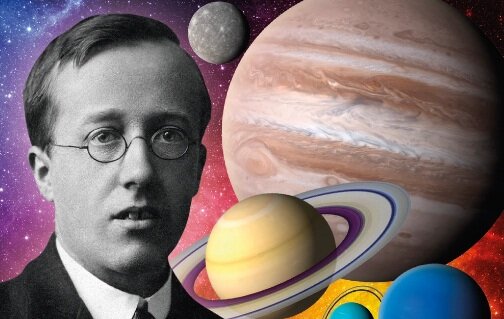April 23, 2025 | Svetlanov Hall of the Moscow Performing Arts Center
Academic Grand Choir “Masters of Choral Singing”
Evgenia Krivitskaya, organ
Conductor – Arsenty Tkachenko
Saint-Saëns. Symphony No. 3 ("Organ Symphony") in C minor, Op. 78
Holst. «The Planets», suite for orchestra, Op. 32
The conductor Arsenty Tkachenko and the NPR will present at the Svetlanov Hall a new programme for Cosmonautics Day with the Academic Grand Choir “Masters of Choral Singing” and famous organ player Evgenia Krivitskaya.
The night will start with Saint-Saëns's Third Symphony commissioned by the Royal Philharmonic Society in London where the author conducted its premiere himself on May 19, 1886. The Symphony has become one of the apexes of his corpus. “I gave everything to it I was able to give,” the composer said, “what I have here accomplished, I will never achieve again.” He created a Beethoven-like monumental two-movement composition which reveals the contours of the traditional classic symphonic structure. One of the factors of linking the movements is Liszt's monothematic principle. In this opus Saint-Saëns is both a consummate orchestral expert and a brilliant judge of instrumentation. He added to the traditional orchestra a piano and an organ, the instruments he was a virtuoso in playing, as well as Ferenc Liszt to whose memory it was dedicated.
It will be followed by the monumental symphonic suite “The Planets” by the English composer Gustav Holst, a work that made the author world-famous. The Suite was triggered by astrological ideas: each movement is allotted to one of the planets of the Solar System and the music transpires its astrological connotation. The Suite has influenced greatly many composers (Hollywoodian especially), mainly by its orchestration. The Suite written during the First World War was not directly connected with the tragic events in Europe, but the contrast between the images of war and peace is evident in it.




